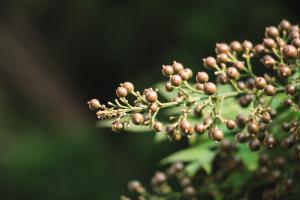Introduction
Plant cells have a unique characteristic that sets them apart from animal cells: the presence of cell walls. While animal cells only have a plasma membrane as their outer boundary, plant cells have both a plasma membrane and a cell wall. But why is this so? What purpose does the cell wall serve in plant cells?
Structural Function
One of the main functions of the cell wall in plant cells is to provide structural support. Unlike animal cells, which rely on their cytoskeleton to maintain their shape and structure, plant cells have a rigid cell wall made up of cellulose, hemicellulose, and lignin. This cell wall provides a strong, protective barrier that helps support the weight of the plant and prevent it from collapsing under its own weight. Cell walls also allow plant cells to maintain a fixed shape, which is essential for the growth and development of a plant.
Protection Function
Another important function of the cell wall in plant cells is to provide protection against external factors. Cell walls help protect plant cells from damage caused by physical and chemical stresses, such as wind, water, and pathogens. The cell wall acts as a barrier, preventing harmful molecules and organisms from entering the cell and causing damage. Some cell walls also contain substances that can act as natural pesticides, repelling insects and other pests that might try to attack the plant.
Regulation Function
The cell wall in plant cells also plays a role in regulating various cellular processes. For example, the cell wall helps control the movement of water, minerals, and other molecules into and out of the cell. It also helps regulate the plant's growth and development by providing structural support and serving as a surface for various signaling molecules to bind to. Additionally, the cell wall can act as a storage site for various compounds, such as polysaccharides, enzymes, and hormones.
Conclusion
Overall, the cell wall is an essential component of plant cells, providing structural support, protection, and regulation. Without cell walls, plants would not be able to maintain their shape or survive in their natural environments. Understanding the importance and functions of the cell wall has implications for both biology and agriculture, as it can help us better understand plant growth, development, and defense mechanisms.

 how many times do yo...
how many times do yo... how many planted tre...
how many planted tre... how many pine trees ...
how many pine trees ... how many pecan trees...
how many pecan trees... how many plants comp...
how many plants comp... how many plants can ...
how many plants can ... how many plants and ...
how many plants and ... how many pepper plan...
how many pepper plan...






























